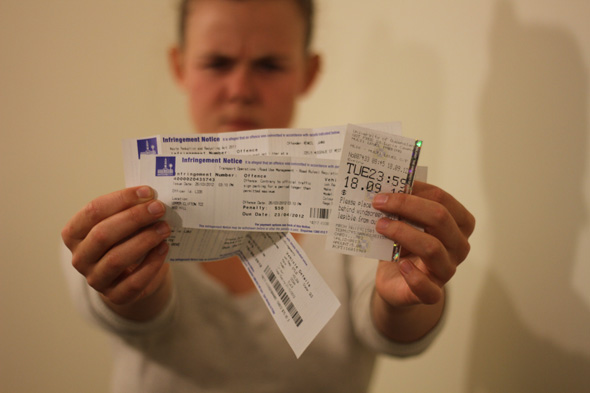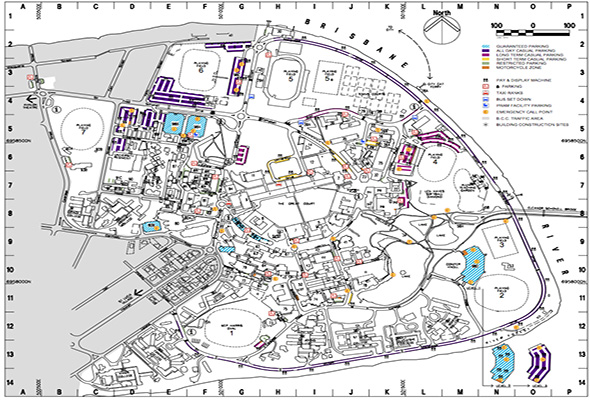
UQ parking premium infuriates students and staff
Students and staff at the University of Queensland compete for car parks, misconceptions over commuter parking issue.
Students and staff at the University of Queensland are competing for car parks, searching up to one hour at peak times and receiving fines due to a lack of long term parking.
Commuters travelling from outer regions such as Ipswich have been blamed for the lack of available car parks, using the campus parking facilities and catching public transport into the city.
Mark Kranz, manager for Transport Systems, Property and Facilities Division at UQ said there are misconceptions about parking issues on campus.
“We have had complaints in the past about commuter parking, but four years ago we did a static survey observing people parking on campus and catching public transport,” Mr Kranz said.
“The survey was carried out twice a day over a two week period at peak semester and we found that there were only 11 people commuting, two of those being UQ staff who travelled to use a gym.
“I know there are more commuters than this, but this is a case of anecdotal evidence versus actual evidence, and the actual evidence suggests minor numbers.
“Data collected from Translink also supports our findings.”
Mr Kranz said that the 2011 floods, UQ construction projects and people’s own behavioural issues contribute to the parking issue at UQ.
“Between 300 to 400 car parks were lost after the 2011 floods due to the relocation of flood affected areas to demountables which sit on top of car parks,” Mr Kranz said.
“In addition to this, UQ has undergone a major construction program over the last ten years which has seen the development of word-class research and teaching facilities across the campus precinct.
“Buildings such as the Australian Institute for Bioengineering and Nanotechnology (AIBN) and the Sir James Foots Building have been built on top of areas that used to be car parks, and it is far too expensive to build underground car parks.”
However, while the facilities — not carparks — may attract people to UQ, a 2011 survey conducted by the Queensland Centre for Population Research (QCPR), found that cars are the most common mode of transport, accounting for more than two-fifths of all movements.
Buses accounted for over a third of journeys to and from UQ, just under a fifth of trips are on foot, and one in twenty are by bicycle.
The campus population survey is scheduled each year to monitor growth and inform policy and infrastructure.
When asked what behavioural issues affected parking at UQ, Mr Kranz said issues with expectation and lack of knowledge were major problems.
“Once people hop into a car and they know they can go from A to B, they expect B to be available,” Mr Kranz said.
“Unfortunately this is not always the case and I know this because I experience the same issue every year when I attempt to do my Christmas shopping at a shopping centre.
“I know I won’t be able to find a park, but I still try. We have to look at real alternatives.”
Alternatives include using public transport, riding a bicycle or walking.
However, while public transport may appear to be a more sustainable option, it is not always a viable one.
UQ student Ashleigh Rose said using public transport would pose a major inconvenience.
“Public transport is difficult and I would have to catch two trains and a bus to get to UQ,” Ms Rose said.
“Plus public transport isn’t cheap. I spend $13 on parking each week and I would have to put just under double that on my Go Card, then there is the time spent.”
Mr Kranz said people can positively impact the parking issue by either changing the mode of transport they use or melding the modes, effectively alleviating the pressure on infrastructure.
“There are a whole series of inconveniences built into this ideal and it is a decision that has to be made for personal benefit,” Mr Kranz said.
“Once the major construction projects are completed in the middle of 2013 we will undertake a real analysis of UQ’s infrastructure to determine what is needed.
“Until then we need to communicate to people individually and collectively, because parking and transport are emotive issues.
“I want to make sure people are blowing a gasket for the right reasons and not the wrong ones.”
[polldaddy poll=6545593]

